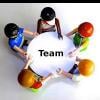Related Content
 |
Pandemic Challenge 205 of 7,923: Recognizing Project Milestones These days teams are compensating as best they can, but some aspects of project life are difficult with remote teams and social distancing. Celebrating milestone achievement is hard but necessary in our current circumstances. |
|
 |
Agile+DevOps Culture in a Virtual World Transforming and maintaining culture is hard enough when team members are somewhat co-located and in physical spaces—even harder when the majority are working from home. |
|
 |
How Agile Principles Help in a Remote Working Atmosphere When working remotely, teams often face high risks due to lack of communication and differences. However, when implementing agile principles, even remote teams can minimize the risks of failure. |
|
 |
Test Teams Evaluation to Improve Effectiveness Evaluating a test team member’s abilities is crucial in recognizing deficiencies within the team, and it provides an opportunity to outline a strategy to remedy the weaknesses. Selecting the proper method for evaluating the test team’s abilities is vital. |
|
 |
How to Run a Productive and Effective Remote Team With remote work becoming the norm, now is a good time to consider how you can help your team do their best without causing burnout. Fortunately, remote work may actually improve productivity. After all, it's one of the factors that largely contribute to job satisfaction. |
|
 |
Evaluating Team Health in Agile and DevOps The importance of the human element in delivering great software is sometimes overlooked, as is the relationship between team health and team performance. Just like physical health checks, team checkups are important. Let's look at some factors that can affect team health and how you can evaluate the important metrics. |
|
 |
3 Ways Leaders Can Change a Blame Culture If your organization has a blame culture, team members get discouraged and mistrust leaders. It focuses on pointing fingers, not coming up with solutions to move forward. To increase trust, inspire creativity, and nurture a generative culture with your team, here are three things leaders can do instead of placing blame. |
|
 |
Making a Game out of Building an Amazing Team Games are a cost-effective and efficient way to evaluate, assess, and thus hire people with the right expertise and aptitude. It is an equally practical and powerful way to continue to develop and improve the team and individual team members. Try using games to improve your efforts to build and maintain an outstanding team. |







